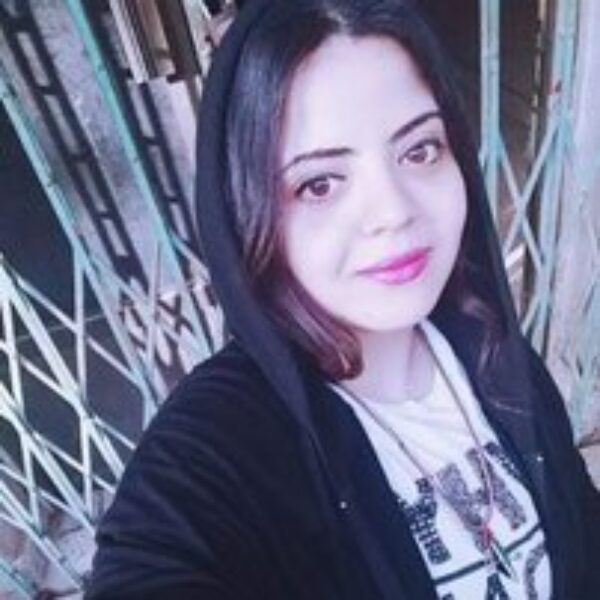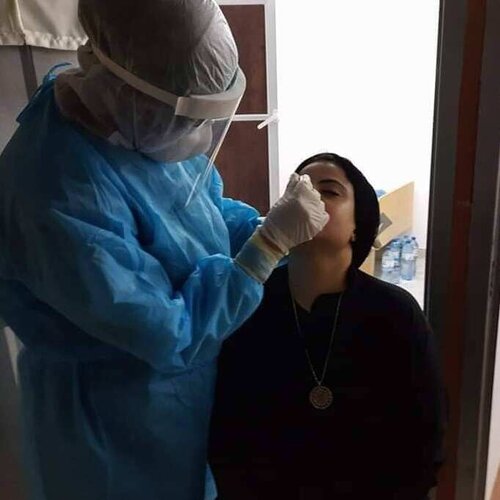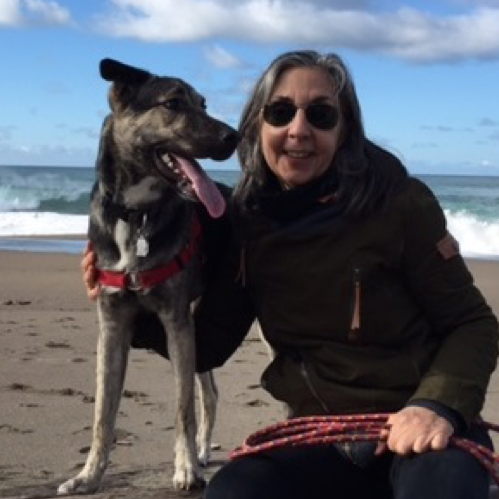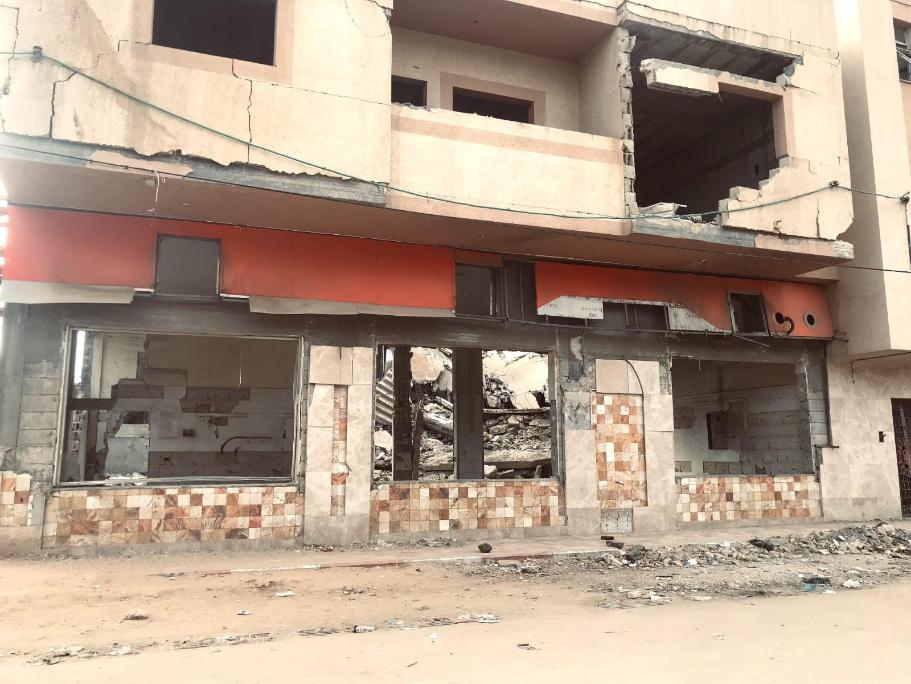My journey from Egypt home to Gaza was not pleasant, but the quarantine awaiting me was far more of a challenge. My family had traveled to Egypt just before the pandemic hit and then were prevented from returning home when the border closed. Finally, though, it had opened for a few days.
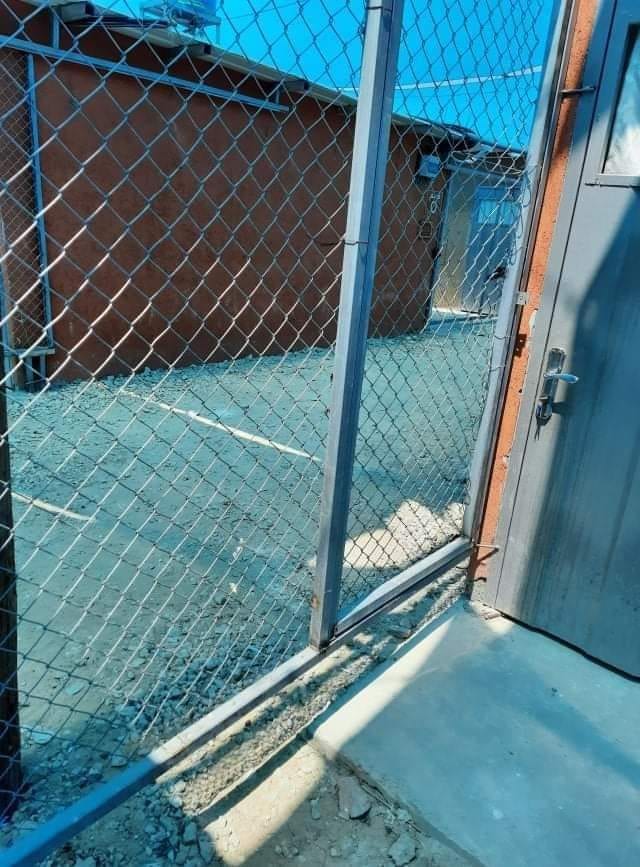
It was 4 a.m. at the Rafah border crossing into Gaza when we finally completed the required blood tests and screening of our luggage. The bus driver then came to drive us to an unknown destination. I rushed to sit on the first seat in the bus. At dawn, the streets were deserted. I gazed through the window with a confusion of feelings. More than five months had passed since I had left home, and COVID-19 now prevented me from stepping off the bus into the waiting arms of the rest of our family.
I thought about breaking the bus window and jumping out to hug my sister and her children, who had come to greet us and lived not far away. Instead, I slept again as we drove for about two hours. I awoke to what looked like an open-air prison within the prison that Gaza already is: a bunch of trailer-like structures in the middle of a remote field near the Erez crossing into Israel.
All the men who welcomed us wore face masks, gloves and protective gowns. One of them held a paper, calling off names. When ours were called, we were instructed to go to our assigned rooms. On my way there, the only things I noticed were the steel wire surrounding us and the other people inside the enclosure. I felt powerless. It had been such a tiring trip, I could barely feel my arms and legs.
I put the three suitcases we were allowed to bring with us on the floor, tore off my mask and immediately took a quick shower. Then I found a bed in the corner, turned the fan and slept until 5 p.m.
It all felt like a dream. I was in Gaza, but not in my house. How many days would I have to stay in this prison? Do I have the coronavirus? If so, what does the future hold for me?
The first three days in the quarantine zone were the hardest as I tried to adjust: no hanging out with friends, no physical contact with the others in isolation with us, no activities. I spent most of my time sleeping. Thank God we were allowed to sit in front of the door where we could see out.
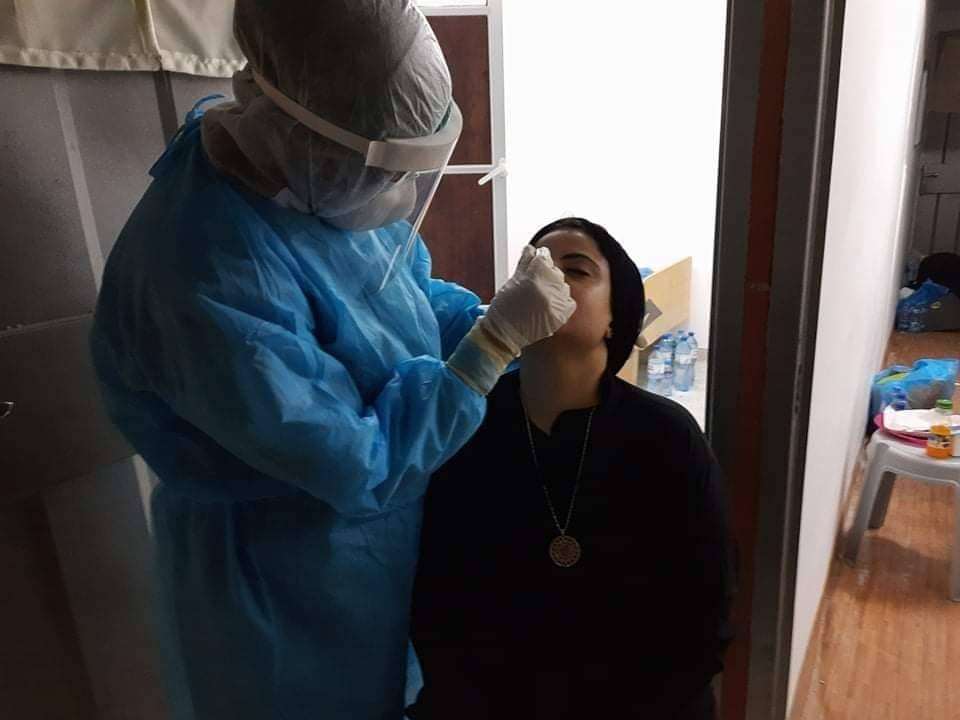
After three days, the staff knocked on the doors and told us to prepare for a nasal swab to be taken the following morning. I had heard that it hurts, so I Googled it and found an article. I opened the site with shaking hands and read it closely. According to the authors, the doctors use a tube that detects the presence of COVID-19 in the nasal passages. "It’s like a stab in the brain," said one person. I felt a sudden itch in my nose upon reading this.
The next day, it was my turn to have the test. Two doctors came in carrying medical equipment. One of the doctors asked me to sit in a chair without moving. She put the tube in my nose, pressing it in and out twice. I was so happy; it didn't hurt at all! But my happiness didn't last long. After we were tested, they sent us back to our little rooms and locked the doors until our results came back. People became upset, with some screaming loudly, "Open the fucking doors! We have children and elderly who can't bear to stay inside all this time.”
After an hour, the staff came to calm us, saying, "We did this for your safety. You need to wait for the results, then we will open the doors.” I couldn't get even a wink of sleep. I was afraid that if my test results were positive, I would be sick and begin to suffer symptoms. I isolated myself and made a list of people with whom I had been in close contact over the last several days. The thoughts running through my mind were all about death, until the sun came up.
Good news: Our test results were negative.
The wall
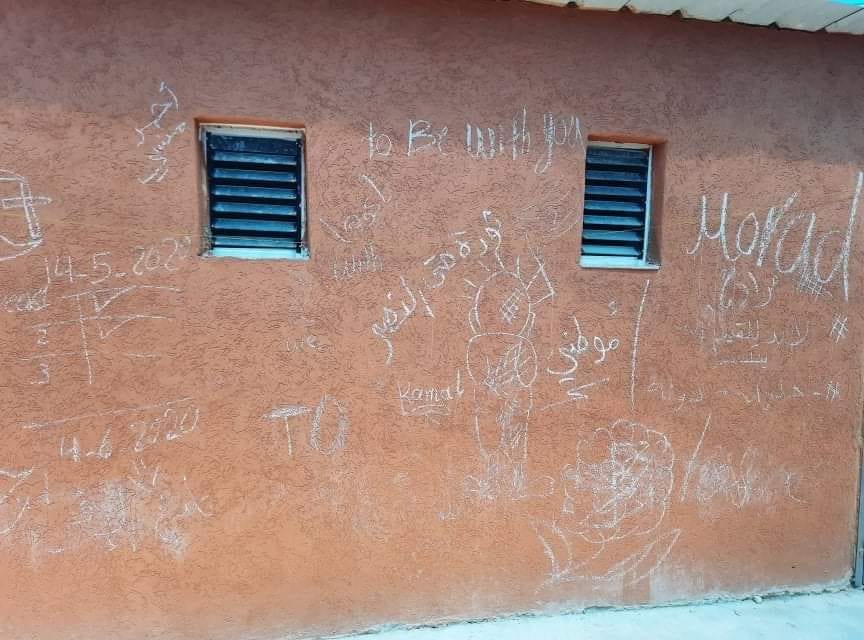
As a witness to their time, people who passed through these buildings before expressed their feelings by drawing and writing words on the walls. If I look closely, I can see Handala, the Naji al-Ali cartoon of a refugee boy who became a symbol of Palestinian resistence. His hands will remain clasped behind him until we are allowed to return to our ancestral homeland in what is now Israel. Someone had also recorded the date of his arrival in quarantine, 14-5-2020, and the date of his departure, 4-6-2020. It seemed he had counted the days here as I do. Judging by the names on the wall, I guessed they had all been men here at that time, not families.
Astronaut in white
Every time I look out the window and see the man outside, dressed all in white with a tank of disinfectant on his back, I imagine myself living in a science fiction tale. He looked like an astronaut in outer space. I name him the White Alien. He works around the clock to spray and sanitize the doors, electricity poles and garbage drums.
Time goes on
Everyone here spends the time differently. There's no TV, magazines or any kind of entertainment, except for what we can find on our phones with the bad internet connection. Every day, we take a nap in the afternoon and when we wake up, each one does their own thing. My mother recites the Quran to fill her soul with inner peace. Once she feels satisfied, she socializes with our quarantined neighbours. My father spends most of his time reading the latest news from around the world via Facebook. As for me, during the day I listen to music while watching the kids. At night I drink coffee and gaze at the moon-lit sky.
The tuk-tuk
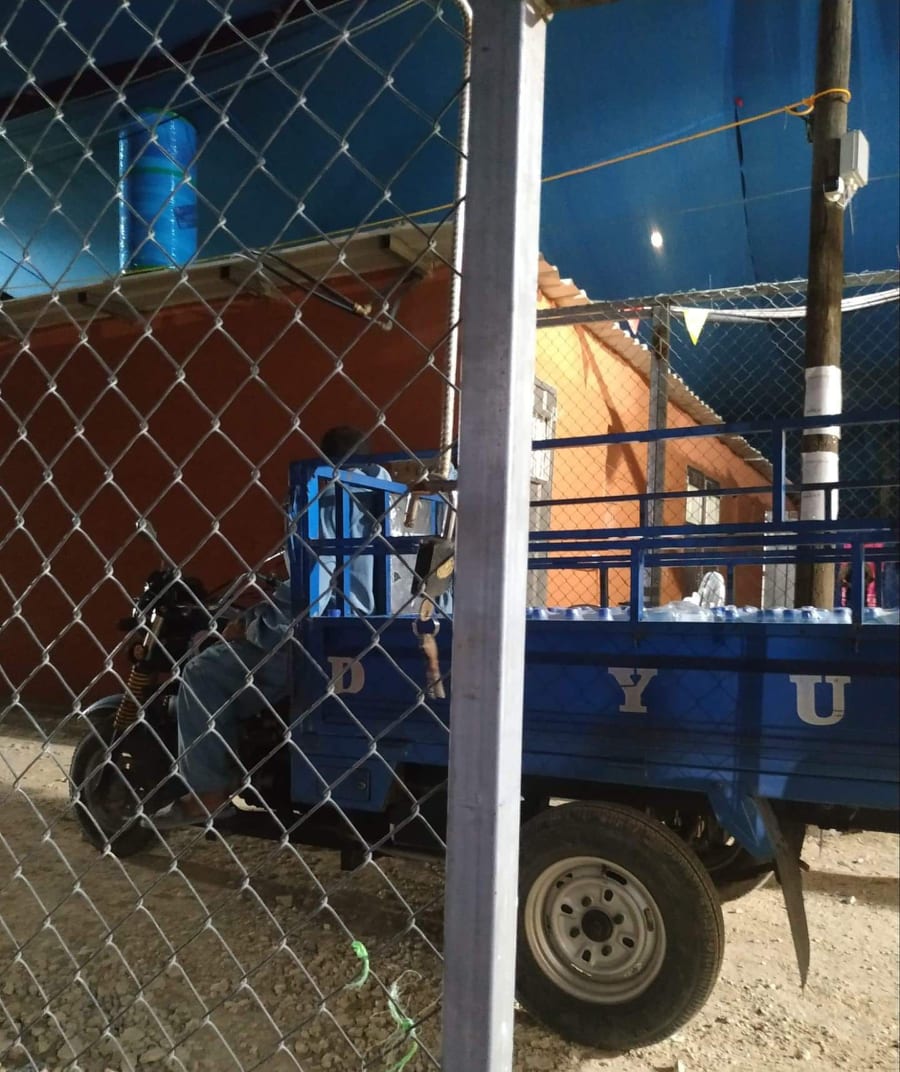
An omelette sandwich with a cup of tea is my favourite breakfast. However, in quarantine, I don't have choices, since our food is loaded on a tuk-tuk and the same items are distributed to all of us without exception. For breakfast we get three pieces of pita bread, hummus, a packet of cheese, cucumber, tomato and halawa (a type of sweet made of tahini and sugar) for dessert. Sometimes they bring us falafel sandwiches and orange juice. At lunch, we wait eagerly behind the steel wire to learn what they had brought for us. I learned that the meals are made by two well-known restaurants in Gaza. Sometimes we get rice with chicken or shawarma and barbecue (kabob). When lunch is shawarma, I walk on air. For dinner, we have yogurt, fino bread and cheese triangles. Each family has an electric kettle to make tea, coffee and Nescafe whenever we want.
My sweet Mira
While sitting in my room, I hear the voice of a little girl from behind the locked door. I don't know what she looked like, but I know her name is Mira. Naughty Mira always runs away and hides when the security men come with food and open the door. One day, determined to see that lovely little spirit. I place a chair under the bathroom window and open it, but I can't see her clearly. I suddenly slip off the chair, banging into the window and breaking the glass with my hand. Despite the pain I felt from the cut, I felt warm with joy when I finally see Mira. This 2-and-a-half-year-old girl lives in Egypt and was visiting with her mother, who had not seen her own parents for more than six years. Every day now I stand at the window and watch Mira. Once, at dinner time, she held a tomato in her hand. When she beame tired of eating, she threw the tomato and it landed on her mother's face. I wanted to break all the doors to hug that tiny body.
Memories
Finally, 21 days later, we were set free. The first moments of freedom after quarantine are unforgettable. As we sit in the bus, all the women ululate in celebration. I am so happy, but it’s noon and the glaring heat from the sun made my face under the mask feel sweaty and dirty. When I see the empty streets, I remember the curfew during the 2014 Israeli war on Gaza.
I have read the daily news about COVID-19, but I can’t actually imagine the situation that now confronts me. Cars are parked and covered in dust. Businesses are closed. Nobody walks in the streets except policemen.
I finally arrive home after the two-hour trip. I see the shadow of my relative who has been waiting for us to come. It is the first time for me, to arrive home and not be able to hug or even shake hands with family members. Even within a prison, this pandemic is forcing us to live in isolation.

